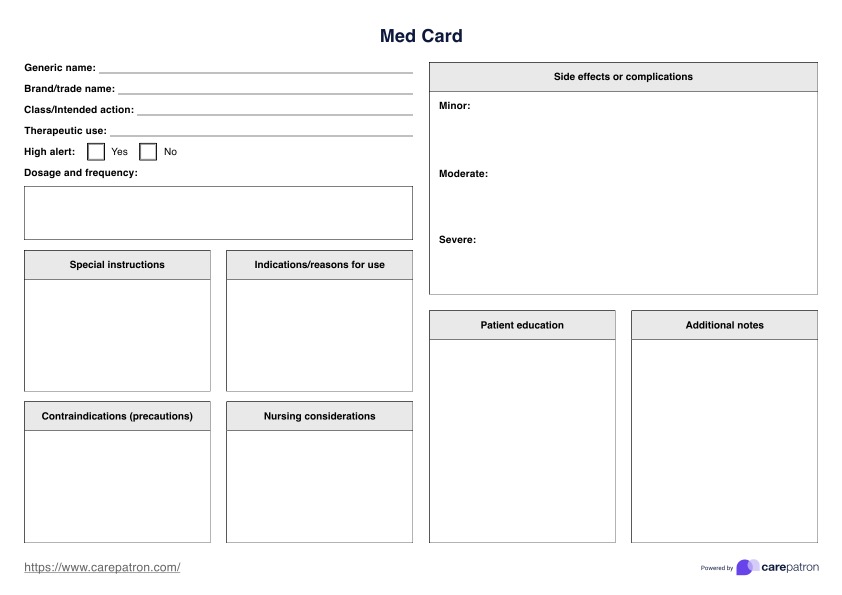Drug card templates are an excellent tool for a student to organize essential details about medications. They make remembering key facts about a particular drug easier, like how to use it safely when treating patients.

Med Card Template
Use our Med Card Template for efficient drug education. Incorporate this tool into your educational and professional healthcare toolkit.
Use Template
Med Card Template Template
Commonly asked questions
Personalized tools, like custom drug cards, help focus on the important information you need most. They’re handy for those who want to understand how to use medications safely and effectively quickly.
Knowing all about a particular drug is key to safe patient care. It helps health professionals and students understand how the medication works, how to give it properly, and what to watch for when treating patients.
EHR and practice management software
Get started for free
*No credit card required
Free
$0/usd
Unlimited clients
Telehealth
1GB of storage
Client portal text
Automated billing and online payments











